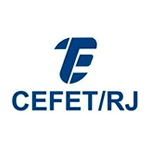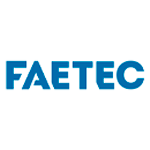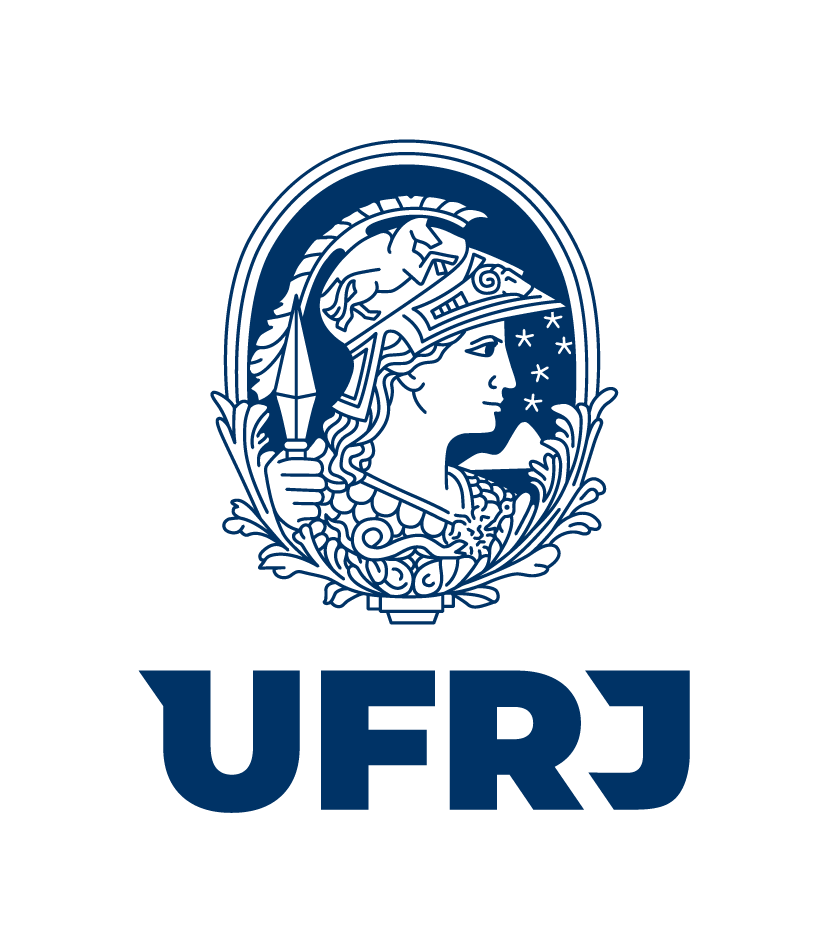Influência Social na Plataforma de Aula Remota: Ponto de Vista dos Professores
DOI:
https://doi.org/10.18264/eadf.v15i1.2345Palavras-chave:
Continuidade de uso., Experiência anterior., Influência social., Continuidade de usoResumo
O objetivo principal desta pesquisa é analisar como a influência social pode atuar como antecedente em relação à expectativa e percepção dos professores quanto à adoção e intenção de continuar o uso de plataformas digitais para aulas remotas. O estudo tem abordagem quantitativa testando uma proposta de modelo conceitual, baseado em construtos comportamentais, utilizando a técnica de modelagem de equações estruturais por mínimos quadrados parciais (PLS-SEM). Os resultados apontaram para um efeito significativo da influência social nas expectativas dos professores quanto ao esforço e desempenho na gestão das plataformas de aulas online com uma percepção positiva sobre o apoio promovido pelas faculdades. Isto demonstra que o distanciamento físico provocado pela pandemia resultou numa proximidade social virtual, baseada na necessidade de utilização mais frequente das tecnologias de comunicação digital. Este estudo demonstra o dinamismo das relações comportamentais e a importância das relações sociais no processo de aceitação tecnológica, instigando novos estudos e contribuindo para estudos empíricos de temas atuais. O modelo foi validado por pesquisa com professores brasileiros da região Norte (principalmente região Amazônica). Os resultados demonstram que a aceitação tecnológica pode ser facilitada quando o corpo docente tem, em seus pares, referências que inspiram a aprendizagem. O estudo social comprovou a relevância da influência social no cenário de restrições quanto ao convívio social presencial.
Palavras-chave: Continuidade de uso. Modelo UTAUT. Experiência anterior. Influência social.
Downloads
Referências
AJZEN, I.; FISHBEIN, M. A Bayesian analysis of attribution processes. Psychological Bulletin, v. 82, n. 2, p. 261, 1975.
ALMAIAH, M. A.; ALAMRI, M. M.; AL-RAHMI, W. Applying the UTAUT model to explain the students’ acceptance of a mobile learning system in higher education. IEEE Access, v. 7, p. 174673–174686, 2019.
ALWAHAISHI, S.; SNÁSEL, V. Acceptance and use of information and communications technology: a UTAUT and flow based theoretical model. Journal of Technology Management & Innovation, v. 8, n. 2, p. 61–73, 2013.
BAROUDI, S.; SHAYA, N. Exploring predictors of professors’ self-efficacy for online teaching in the Arab world amid COVID-19. Education and Information Technologies, v. 27, n. 6, p. 8093–8110, 2022.
BRUGGEMAN, B. et al. Experts speaking: Crucial professor attributes for implementing blended learning in higher education. The Internet and Higher Education, v. 48, p. 100772, 2021.
BURTON, S.; SHEATHER, S.; ROBERTS, J. Reality or perception? The effect of actual and perceived performance on satisfaction and behavioral intention. Journal of Service Research, v. 5, n. 4, p. 292–302, 2003.
CHIU, C. M.; WANG, E. T. Understanding web-based learning continuance intention: the role of subjective task value. Information & Management, v. 45, n. 3, p. 194–201, 2008.
DAVIS, F. D. Perceived usefulness, perceived ease of use and user acceptance of information technology. MIS Quarterly, p. 319–340, 1989.
DINDAR, M. et al. Comparing technology acceptance of K‐12 professors with and without prior experience of learning management systems: a COVID‐19 pandemic study. Journal of Computer Assisted Learning, v. 37, n. 6, p. 1553–1565, 2021.
DONMEZ-TURAN, A. Do unified theory of acceptance and use of technology (UTAUT) reduce resistance and anxiety of individuals towards a new system? Kybernetes, v. 49, n. 5, p. 1381–1405, 2020.
DONNELLY, D.; MCGARR, O.; O’REILLY, J. A framework for professors’ integration of ICT into their classroom practice. Computers & Education, v. 57, n. 2, p. 1469–1483, 2011.
GARONE, A. et al. Clustering university teaching staff through UTAUT: implications for the acceptance of a new learning management system. British Journal of Educational Technology, v. 50, n. 5, p. 2466–2483, 2019.
GUPTA, A.; YOUSAF, A.; MISHRA, A. How pre-adoption expectancies shape post-adoption continuance intentions: an extended expectation-confirmation model. International Journal of Information Management, v. 52, p. 102094, 2020.
HAIR, J. F. et al. A primer on partial least squares structural equation modeling (PLS-SEM). Thousand Oaks, CA: Sage, 2022.
HENSELER, J. et al. Common beliefs and reality about PLS: comments on Rönkkö and Evermann (2013). Organizational Research Methods, v. 17, n. 2, p. 182–209, 2014.
IGBARIA, M.; PARASURAMAN, S. A path analytic study of individual characteristics, computer anxiety and attitudes toward microcomputers. Journal of Management, v. 15, n. 3, p. 373–388, 1989.
JADIL, Y.; RANA, N. P.; DWIVEDI, Y. K. A meta-analysis of the UTAUT model in the mobile banking literature: the moderating role of sample size and culture. Journal of Business Research, v. 132, p. 354–372, 2021.
JOA, C. Y.; MAGSAMEN-CONRAD, K. Social influence and UTAUT in predicting digital immigrants’ technology use. Behaviour & Information Technology, v. 41, n. 8, p. 1620–1638, 2022.
KEMP, A.; PALMER, E.; STRELAN, P. A taxonomy of factors affecting attitudes towards educational technologies for use with technology acceptance models. British Journal of Educational Technology, v. 50, n. 5, p. 2394–2413, 2019.
KESSLER, L. A.; MARTIN, M. T. The relationship between usability anxiety and satisfaction: a study on the use of a web application for information literacy. Computers in Human Behavior, v. 91, p. 318–327, 2019.
LIAO, C. et al. Applying the expectancy disconfirmation and regret theories of online consumer behavior. Cyberpsychology, Behavior and Social Networking, v. 14, n. 4, p. 241–246, 2011.
MALHOTRA, N. K. Basic marketing research: integration of social media. Boston: Pearson, 2012.
MARUPING, L. M. et al. Going beyond intention: integrating behavioral expectation into the unified theory of acceptance and use of technology. Journal of the Association for Information Science and Technology, v. 68, n. 3, p. 623–637, 2017.
MOODLEY, K. et al. Factors enhancing mobile technology acceptance: a case study of 15 professors in a Pretoria secondary school. South African Journal of Education, v. 40, n. 2, p. S1–S16, 2020.
MUBAROKAH, I.; HIDAYANTO, A. N. Analysis of continuance use intention and satisfaction on implementation of ALKI (Internal Activity Report Application) in Ministry of Industry. In: INTERNATIONAL CONFERENCE ON INFORMATICS, MULTIMEDIA, CYBER AND INFORMATION SYSTEM (ICIMCIS), 2020, [s. l.]. Anais... IEEE, 2020. p. 307–312.
NISTOR, N.; GÖĞÜŞ, A.; LERCHE, T. Educational technology acceptance across national and professional cultures: a European study. Educational Technology Research and Development, v. 61, n. 4, p. 733–749, 2013.
PILLAI, K. R. et al. End-user satisfaction of technology-enabled assessment in higher education: a coping theory perspective. Education and Information Technologies, v. 26, n. 4, p. 3677–3698, 2021.
POTOSKY, D.; BOBKO, P. The computer understanding and experience scale: a self-report measure of computer experience. Computers in Human Behavior, v. 14, n. 2, p. 337–348, 1998.
SANTOS JUNIOR, V. B.; MONTEIRO, J. C. Education and COVID-19: digital technologies mediating learning in times of pandemic. Enchanting Magazine, v. 2, p. 01–15, 2020.
SAROSA, S. The role of brand reputation and perceived enjoyment in accepting compulsory device’s usage: extending UTAUT. Procedia Computer Science, v. 161, p. 115–122, 2019.
SIMONSON, M. R. et al. Development of a standardized test of computer literacy and a computer anxiety index. Journal of Educational Computing Research, v. 3, n. 2, p. 231–247, 1987.
ŠUMAK, B.; POLANCIC, G.; HERICKO, M. An empirical study of virtual learning environment adoption using UTAUT. In: INTERNATIONAL CONFERENCE ON MOBILE, HYBRID, AND ON-LINE LEARNING, 2., 2010, [s. l.]. Anais... IEEE, 2010. p. 17–22.
TEDESCHI, M. A.; STRAUHS, F. R. O impacto do ensino remoto emergencial na carga de trabalho dos discentes de um curso de Instituição Federal de Educação Superior. Extensão em Foco, v. 23, 2021.
TOMCZYK, Ł. et al. Evaluation of the functionality of a new e-learning platform vs. previous experiences in e-learning and the self-assessment of own digital literacy. Sustainability, v. 12, n. 23, p. 10219, 2020.
VENKATESH, V. et al. User acceptance of information technology: toward a unified view. MIS Quarterly, p. 425–478, 2003.
WARSHAW, P. R.; DAVIS, F. D. Disentangling behavioral intention and behavioral expectation. Journal of Experimental Social Psychology, v. 21, n. 3, p. 213–228, 1985.
WILLIAMS, M. D.; RANA, N. P.; DWIVEDI, Y. K. The unified theory of acceptance and use of technology (UTAUT): a literature review. Journal of Enterprise Information Management, 2015.
WU, B. et al. The adoption of MOOC environments in higher education: an empirical study based on the UTAUT model. Educational Technology Research and Development, v. 67, p. 1991–2011, 2019.
YAN, M.; FILIERI, R.; GORTON, M. Continuance intention of online technologies: a systematic literature review. International Journal of Information Management, v. 58, p. 102315, 2021.
YEE, M. L. S.; ABDULLAH, M. S. A review of UTAUT and extended model as a conceptual framework in education research. Jurnal Pendidikan Sains Dan Matematik Malaysia, v. 11, p. 1–20, 2021.
ZHANG, J. et al. Assessing quality of online learning platforms for in-service professors’ professional development: the development and application of an instrument. Frontiers in Psychology, v. 13, 2022.
ZHOU, L. L. et al. Assessment of the social influence and facilitating conditions that support nurses’ adoption of hospital electronic information management systems (HEIMS) in Ghana using the unified theory of acceptance and use of technology (UTAUT) model. BMC Medical Informatics and Decision Making, v. 19, n. 1, p. 1–9, 2019.
ZHOU, T.; LU, Y.; WANG, B. Integrating TTF and UTAUT to explain mobile banking user adoption. Computers in Human Behavior, v. 26, n. 4, p. 760–767, 2010.
Downloads
Publicado
Como Citar
Edição
Seção
Licença
Copyright (c) 2025 EaD em Foco

Este trabalho está licenciado sob uma licença Creative Commons Attribution 4.0 International License.
Todos os artigos publicados na Revista EaD em Foco recebem a licença Creative Commons - Atribuição 4.0 Internacional (CC BY 4.0). Todas as publicações subsequentes, completas ou parciais, deverão ser feitas com o reconhecimento, nas citações, da Revista EaD em Foco como a editora original do artigo.













